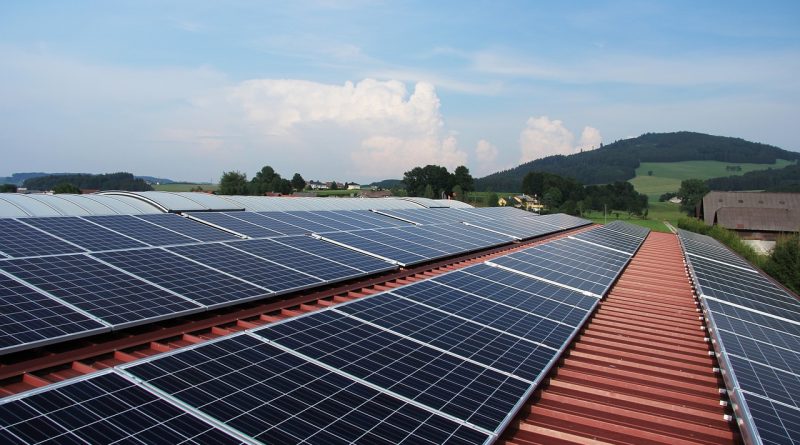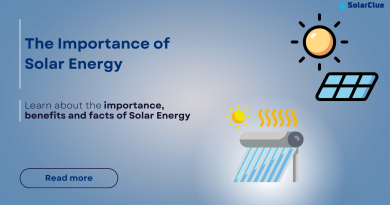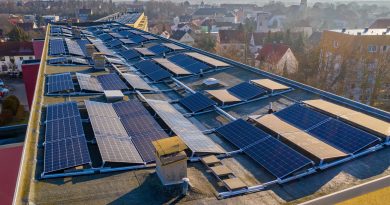Advantages of On-Grid Solar Systems: Sustainable Power
Over the past few years, there has been a rapid growth in the utilization of solar energy worldwide. One of the most popular ways to harness this renewable energy source is through an on-grid solar system. An on-grid solar system, also known as a grid-tied system, is connected to the local utility grid. This blog explores the numerous advantages that on-grid solar systems offer, making them an appealing choice for both residential and commercial applications.
Advantage 1: Energy Independence
One of the key advantages of an on-grid solar system is the ability to generate your own electricity and lessen reliance on the grid. By installing solar panels on your property, you can generate clean and renewable energy, reducing your dependence on fossil fuels. This not only contributes to a greener environment but also offers long-term energy independence. Even during periods of high energy consumption, if your solar system generates more electricity than you use, you can feed the excess back into the grid and receive credits on your utility bill. This way, you can reduce your electricity costs and potentially even eliminate them entirely.
Advantage 2: Cost Savings
Another significant advantage of on-grid solar systems is the potential cost savings they offer. Traditional electricity bills can be a major expense for households and businesses. By generating your own electricity through solar panels, you can significantly reduce or eliminate this expense. Over time, the savings can be substantial, allowing you to allocate funds towards other essential areas.
Additionally, some governments and local utility companies offer incentives and subsidies for those who install on-grid solar systems. These financial incentives further enhance the cost-effectiveness of going solar, making it a financially viable option for many individuals and businesses.
Advantage 3: Environmental Benefits
On-grid solar systems are highly sustainable and have numerous environmental benefits. As mentioned earlier, these systems generate clean and renewable energy. This means that they produce no harmful emissions, reducing the carbon footprint associated with traditional electricity generation. By transitioning to solar energy, individuals and businesses can actively contribute to mitigating climate change and reducing air pollution.
Furthermore, on-grid solar systems often utilize surplus energy generated during the day, which would otherwise go to waste. This energy is fed back into the grid, ensuring maximum utilization of renewable resources. By relying less on fossil fuels, we can preserve natural resources and protect the planet.
Advantage 4: Grid Stability and Resilience
On-grid solar systems enhance the stability and resilience of the power grid. By connecting to the utility grid, these systems can provide electricity to the grid during periods of high demand. This is particularly beneficial during peak hours when energy consumption is at its highest. Solar power generated by on-grid systems can help alleviate strain on the grid, ensuring that there is a reliable supply of electricity for all users.
During power outages, on-grid solar systems offer an additional advantage. With the proper equipment, these systems can be configured to function as backup power sources. This means that even when the grid goes down, you can still have access to electricity, improving the reliability and resilience of your energy supply.
Conclusion
Discover the undeniable advantages of on-grid solar systems with SolarClue® – the trusted name in sustainable energy solutions. Achieve energy independence, reduce costs, and contribute to a greener environment with our cutting-edge on-grid solar systems. Count on the stability, reliability, and resilience they offer, ensuring uninterrupted access to electricity, even during outages.
As the world transitions towards a more sustainable future, SolarClue® makes on-grid solar systems an accessible and efficient solution. By harnessing the power of the sun, you actively participate in creating a cleaner and more sustainable energy landscape. Join SolarClue® on the journey towards a greener and brighter future – the on-grid solar way.
Freqently Asked Questions
An on-grid system is connected to the utility grid, allowing the exchange of energy between the solar system and the grid.
Advantages include cost savings, potential incentives, and a reliable source of clean energy.
By generating solar power and potentially earning incentives, users can reduce electricity bills and overall energy costs.
Yes, on-grid systems are commonly used for residential applications, offering an efficient and cost-effective energy solution.
No, on-grid systems are designed to shut down during outages for safety reasons. Consider a battery backup for uninterrupted power supply.
Many regions offer incentives such as tax credits or rebates for installing on-grid solar systems. Check local regulations for details.
Installation times vary but typically range from a few days to a couple of weeks, depending on system size and complexity.
While challenging, it’s possible in some cases. Consult with professionals to assess feasibility based on location and grid access.
Regular inspection and cleaning are recommended to ensure optimal performance. On-grid systems generally have lower maintenance needs.
On-grid systems reduce reliance on traditional power sources, lowering carbon emissions and contributing to a more sustainable and eco-friendly future.



